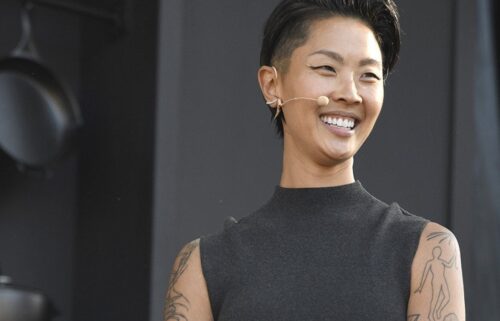FBI finds no specific motive in Vegas shooting
A high-stakes gambler who rained a hail of gunfire down on a crowd of country music fans, killing 58, took any specific motive for the 2017 attack to his grave, the FBI said Tuesday as it concluded the investigation into the deadliest mass shooting in modern U.S. history.
The agency found no “single or clear motivating factor” to explain why Stephen Paddock carried out the attack from his suite in a high-rise casino hotel. The 64-year-old fatally shot himself as police closed in.
“It wasn’t about MGM, Mandalay Bay or a specific casino or venue,” Aaron Rouse, the agent in charge of the FBI’s Las Vegas office, told The Associated Press. “It was all about doing the maximum amount of damage and him obtaining some form of infamy.”
The finding was contained in a long-awaited report compiled by the FBI’s Behavior Analysis Unit, a group of experts who spent months examining several factors that might have led to the rampage.
“This report comes as close to understanding the why as we’re ever going to get,” Rouse said.
Almost 900 people were hurt during the Oct. 1, 2017, attack on an outdoor concert.
Paddock wanted to die in infamy, inspired in part by his father’s reputation as a bank robber who was once on the FBI most wanted list, the report said. In many ways, he was similar to other active shooters the FBI has studied.
His “decision to murder people while they were being entertained was consistent with his personality,” the report said.
The gunman was not directed or inspired by any group and was not seeking to further any agenda. He did not leave a manifesto or suicide note, and federal agents believe he had planned to fatally shoot himself after the attack, according to the report.
Paddock was a retired postal service worker, accountant and real estate investor who owned rental properties and homes in Reno and in a retirement community more than an hour’s drive from Las Vegas. He also held a private pilot’s license and liked to gamble tens of thousands of dollars at a time playing high-stakes video poker.
His younger brother, Eric Paddock, called him the “king of microaggression” — narcissistic, detail-oriented and maybe bored enough with life to plan an attack that would make him famous. His ex-wife told investigators that he grew up with a single mom in a financially unstable home and he felt a need to be self-reliant.
Police characterized him as a loner with no religious or political affiliations who began stockpiling weapons about a year before the attack. He spent more than $1.5 million in the two years before the shooting and distanced himself from his girlfriend and family.
He sent his girlfriend, Marilou Danley, to visit her family in the Philippines two weeks before the attack and wired her $150,000 while she was there. Danley, a former casino worker in Reno, returned to the U.S. after the shooting and told authorities that Paddock had complained that he was sick and that doctors told him he had a “chemical imbalance” and could not cure him.
Danley, who is Catholic, told investigators that Paddock often told her, “Your God doesn’t love me.”
A Reno car salesman told police that in the months before the shooting Paddock told him he was depressed and had relationship troubles, and his doctor offered him antidepressants. Paddock would only accept a prescription for anxiety medication, the salesman said.
Paddock’s gambling habits made him a sought-after casino patron. Mandalay Bay employees readily let him use a service elevator to take multiple suitcases to the $590-per-night suite he had been provided for free. Authorities said he asked for the room, which had a commanding view of the Strip and the Route 91 Harvest Festival concert grounds across the street.
The night of the massacre, Paddock used assault-style rifles to fire more than 1,000 rounds in 11 minutes into the crowd of 22,000 music fans. Most of the rifles were fitted with rapid-fire “bump stock” devices and high-capacity magazines. Some had bipod braces and scopes. Authorities said Paddock’s guns had been legally purchased.
Las Vegas police closed their investigation last August, and Clark County Sheriff Joe Lombardo declared the police work complete after hundreds of interviews and thousands of hours of investigative work. Lombardo vowed never to speak Paddock’s name again in public.
A separate report made public in August involving the Federal Emergency Management Agency found that communications were snarled during and after the shooting. It said police, fire and medical responders were overwhelmed by 911 calls, false reports of other shootings at Las Vegas casinos and the number of victims.
Hotel security video and police body camera recordings made public in a public-records lawsuit filed by media organizations including the AP showed police using explosives to blast through the door of the 32nd-floor hotel suite where Paddock was found dead.
He left behind nothing that offered an explanation.
“He acted alone. He committed a heinous act. He died by his own hand,” Rouse said. “If he wanted to leave a message, he would have left a message. Bottom line is he didn’t want people to know.”



